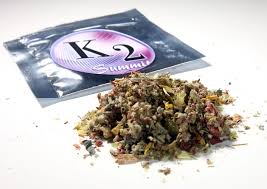Synthetic Weed, Synthetic Weed—a term that often evokes concern and curiosity—refers to a range of man-made substances designed to mimic the effects of natural cannabis. Though these substances may be marketed as a safer or legal alternative to marijuana, they come with significant risks and health concerns that are important to understand.
What Is Synthetic Weed?
Synthetic weed, also known as synthetic cannabinoids or “Spice” and “K2,” is a collection of synthetic chemicals that interact with the same brain receptors as THC, the active compound in marijuana. These substances are usually sprayed onto plant material and smoked or vaporized, mimicking the experience of smoking marijuana.
The Appeal and Misconceptions
One of the reasons synthetic weed became popular is its accessibility. Often sold in convenience stores or online with misleading labels like “herbal incense,” it was perceived as a legal and safer alternative to cannabis. However, this perception is misguided.
Health Risks and Side Effects
Unlike natural cannabis, the chemicals in synthetic weed can be vastly different from batch to batch. This inconsistency can lead to severe health risks, including:
- Psychosis and Delusions: Users may experience intense paranoia, hallucinations, and delusions.
- Severe Agitation and Aggression: Increased agitation and aggressive behavior have been reported.
- Cardiovascular Issues: Increased heart rate, high blood pressure, and even heart attacks can occur.
- Kidney Damage: Some synthetic cannabinoids have been linked to kidney damage or failure.
The unpredictability of synthetic weed makes it particularly dangerous. Users often have no idea what chemicals they are consuming or their potential effects on their health.
Legal Status and Regulation
Synthetic weed’s legal status varies by location, with many countries and states enacting specific laws to combat its sale and distribution. The substances used in synthetic weed are frequently updated, making it challenging for regulations to keep pace. This ongoing battle highlights the need for better control and public awareness.
The Path Forward
Education is key to addressing the risks associated with synthetic weed. Understanding the potential dangers and recognizing that these substances are not a safe alternative to natural cannabis is crucial. Additionally, seeking help from health professionals and support groups can be invaluable for those struggling with addiction or adverse effects from synthetic weed.
In summary, while synthetic weed may initially seem like a harmless substitute for marijuana, its unpredictable and dangerous nature poses significant health risks. Awareness and vigilance are essential in preventing its misuse and protecting public health.
You Might Also Like These:



